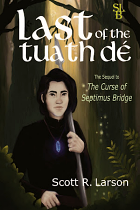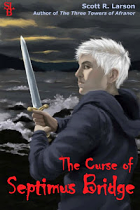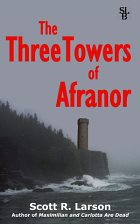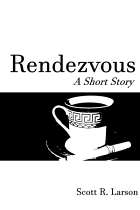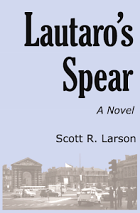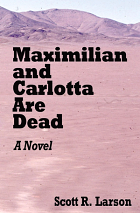The absurdity of it all
The best war is no war. If you can’t have no war, then the best alternative is a short war. Thank goodness this latest war, if it had to happen, was short. Of course, it’s not actually over. And for people directly involved, it won’t be over for a good long time, if ever. But the optimistic view is: it could have been a lot worse.
An admittedly trivial side effect of a short war is that it doesn’t leave me many weeks for a series of war-related movie commentaries. But that’s a price I’m more than willing to pay. Anyway, this is liable to be the last in the series.
Two weeks ago I offered my list of my personal favorite profound war movies. But the war movie genre is so vast that it can easily be divided into numerous sub-categories. The sub-genre that I find most interesting is what I call the absurdity-of-war movie. These are movies where the point is to demonstrate how totally insane, illogical and inhumane war is. They aren’t simply about the horror of war. The aim is more cosmic than that. It is nothing less than to present war as a form of insanity.
There are quite a few films that can rightly fit into this genre. Even so, I have stretched its bounds a bit anyway. In introspect, the golden age of absurdist war movies seems to have been the beginning of 1970s. I could have easily included such 1960s flicks as Blake Edwards’s What Did You Do in the War, Daddy? or Richard Lester’s How I Won the War (featuring John Lennon) or Oh! What a Lovely War (directing debut of Richard Attenborough), but I haven’t. I think these films are better…
• Catch-22 (1970): This is the granddaddy of all absurdist war movies, adapted from Joseph Heller’s granddaddy of all absurdist war novels. True story: when I was a graduate student in literature in Chile in the 1970s, one of my professors was so obsessed with this book that he made me spend the whole semester writing a paper on it—even though the seminar was supposed to be on Latin American literature. So I wound up having to read this in Spanish translation and writing a paper about it in Spanish. The film wasn’t exactly a critical hit, but it struck a chord with those of us who around the time of its release were having our birthdays drawn out of a lottery to see who got to go to Vietnam. It was directed by Mike Nichols and adapted by Buck Henry, the team that had given us The Graduate three years earlier, and it spun images and expressions that stayed in our minds forever. The cast list is still impressive today: Martin Balsam, Richard Benjamin, Jack Gilford, Bob Newhart, Anthony Perkins, Martin Sheen, Jon Voight, Orson Welles, Charles Grodin and, of course, Alan Arkin as the much put-upon Yossarian. If this movie had not been made, maybe the term “catch-22” would have entered the language anyway, on the strength of the novel alone. But I wonder.
• M*A*S*H (1970): Released the same year as Catch-22, this film was a much bigger hit. In a strange way, it seemed as relevant to student life as to military life. The song “Suicide is Painless” became sort of an anthem for a lot of us during Vietnam. This movie version of Richard Hooker’s novel about the Korean War has since been overshadowed by the long-running successful TV series. I never watched the TV version because 1) I just couldn’t stand to see anyone but Donald Sutherland and Elliott Gould as Hawkeye and Trapper John and 2) I didn’t have a TV. Probably what we liked about the movie (directed by Robert Altman and adapted by Ring Lardner Jr.) was its undaunted disrespect for authority. It was basically Animal House in a war zone, with the no-fun, respectful-of-command Major Burns (Robert Duvall) and the uptight Major Houlihan (Sally Kellerman) getting one comeuppance after another. Odd fact: in the TV version of M*A*S*H Harry Morgan played Colonel Potter; in 1966’s What Did You Do in the War, Daddy? he played Major Pott.
• Slaughterhouse-Five (1972): Yet another cult novel brought to the screen, this one was hard to follow if you hadn’t read the book or if you didn’t watch it multiple times or if you weren’t drunk. Directed by George Roy Hill and adapted from Kurt Vonnegut Jr.’s novel by Stephen Geller, it combined a story about World War II and its aftermath with time travel. In a way, its strange structure foresaw a time when filmmakers, like Quentin Tarantino, would have their narratives jump around in time with no explanation. This film hasn’t survived in our memory as well as Catch-22 or M*A*S*H, yet the whole notion of becoming unstuck in time is one we can all relate to as we get older and cope with an ever-increasing number of memories. Neither has the cast gone on to yet more prominent works, as is the case with the other two films. Michael Sacks, in the central role of the exquisitely named Billy Pilgrim, more or less vanished afterwards. Ron Leibman (Lazzaro) is best known today for a small recurring TV role. That, combined with M*A*S*H’s Elliott Gould turn on the same program, suggests that for some 1970s war-as-absurdity actors, their inevitable destiny is to play parents of characters on Friends.
• Pretty Village, Pretty Flame (1996): My sole entry from the 1990s deals with the virtual center of the absurdity universe for that decade, the Balkans. The story is told, unusually enough, from the point of view of Bosnian Serbs, who are mostly depicted in reports from the era as “the bad guys.” It helps us to understand the hatred that surged up between Serbs and Moslems, who had lived as neighbors for years. But it isn’t at all preachy or even self-important. The main story involves a group of Serbs trapped in an abandoned tunnel and the (what else?) absurdity of their situation. Perhaps the most disturbing thing about the film is how funny it is. The director was Srdjan Dragojevic.
• Apocalypse Now (1979): This isn’t so much a film about absurdity as an absurd film. The story of the making of this film, which itself became a documentary, is nearly more interesting than the film itself. Still, the very obsession and amount of money spent (wasted?) on this film about Vietnam by director/producer/co-adapter Francis Ford Coppola strangely echoes the American government’s approach to the Vietnam war. The sheer audacity of the movie (based on Joseph Conrad’s Heart of Darkness) makes it emblematic. What better actor to play the protagonist than Martin Sheen (who also had a role in Catch-22), who today has become an anti-war icon at the same time he has become the face of what many people (at least in Hollywood) think would be the ideal president? What better face to put on a rogue officer hiding away from the discipline of civilization than Marlon Brando in his mid-50s? And what better actor to play the whacked-out, napalm-smell-loving colonel Kilgore than the original Frank Burns of M*A*S*H, Robert Duvall? For the sake of general weirdness, we also have Dennis Hopper, as a photojournalist, and a couple of screen icons in small roles: Harrison Ford and Scott Glenn. As with 2001: A Space Odyssey, the images eventually wear you down and blow you away and you don’t know quite what to make of it all.
• Kelly’s Heroes (1970): This doesn’t actually belong on this list, but I’m drunk with power and I’m putting here anyway. This isn’t really an absurdity-of-war movie. It’s a war comedy. In fact, it’s a caper comedy. I don’t know why I’ve always liked this flick, but I have. It was directed by Brian G. Hutton, whose not-so-illustrious career also included The Pad and How to Use It and Where Eagles Dare. A humorous tale of American soldiers at the close of World War II who decide to seize the chance to get rich, the movie turns the idea of the noble G.I. on its head. The film draws the best from Clint Eastwood, in both action mode and comedy mode, as the titular Kelly. Also on hand is Telly Savalas, who was always a welcome fixture in these sorts of movies, having previously participated in The Dirty Dozen and Mackenna’s Gold. The humor is enhanced by the presence of Don Rickles and Donald Sutherland (cf. M*A*S*H), strangely playing a 1940s hippie. Other familiar caper/comedy faces, in smaller roles, include Stuart Margolin, Gavin MacLeod and Harry Dean Stanton. Okay, it’s too fun to be an absurdist movie, but what other list was I going to be able to put it on? Odd fact: in 1966’s What Did You Do in the War, Daddy? Carroll O’Connor played General Bolt; in Kelly’s Heroes he played General Colt.
-S.L., 17 April 2003
If you would like to respond to this commentary or to anything else on this web site, please send a message to feedback@scottsmovies.com. Messages sent to this address will be considered for publishing on the Feedback Page without attribution. (That means your name, email address or anything else that might identify you won’t be included.) Messages published will be at my discretion and subject to editing. But I promise not to leave something out just because it’s unflattering.
If you would like to send me a message but not have it considered for publishing, you can send it to scott@scottsmovies.com.















